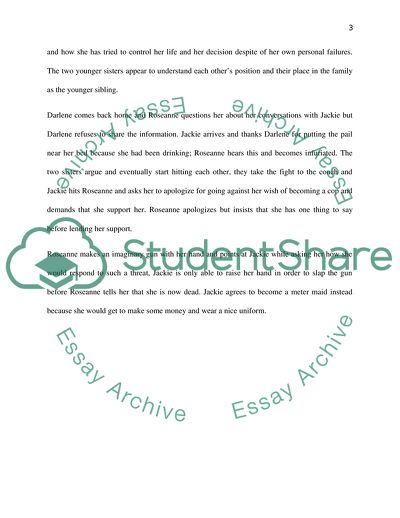Cite this document
(Text and Culture Essay Example | Topics and Well Written Essays - 2500 words, n.d.)
Text and Culture Essay Example | Topics and Well Written Essays - 2500 words. https://studentshare.org/journalism-communication/1828694-text-and-culture-sitcom-roseanne-the-little-sister-season-2-episode-2
Text and Culture Essay Example | Topics and Well Written Essays - 2500 words. https://studentshare.org/journalism-communication/1828694-text-and-culture-sitcom-roseanne-the-little-sister-season-2-episode-2
(Text and Culture Essay Example | Topics and Well Written Essays - 2500 Words)
Text and Culture Essay Example | Topics and Well Written Essays - 2500 Words. https://studentshare.org/journalism-communication/1828694-text-and-culture-sitcom-roseanne-the-little-sister-season-2-episode-2.
Text and Culture Essay Example | Topics and Well Written Essays - 2500 Words. https://studentshare.org/journalism-communication/1828694-text-and-culture-sitcom-roseanne-the-little-sister-season-2-episode-2.
“Text and Culture Essay Example | Topics and Well Written Essays - 2500 Words”. https://studentshare.org/journalism-communication/1828694-text-and-culture-sitcom-roseanne-the-little-sister-season-2-episode-2.


